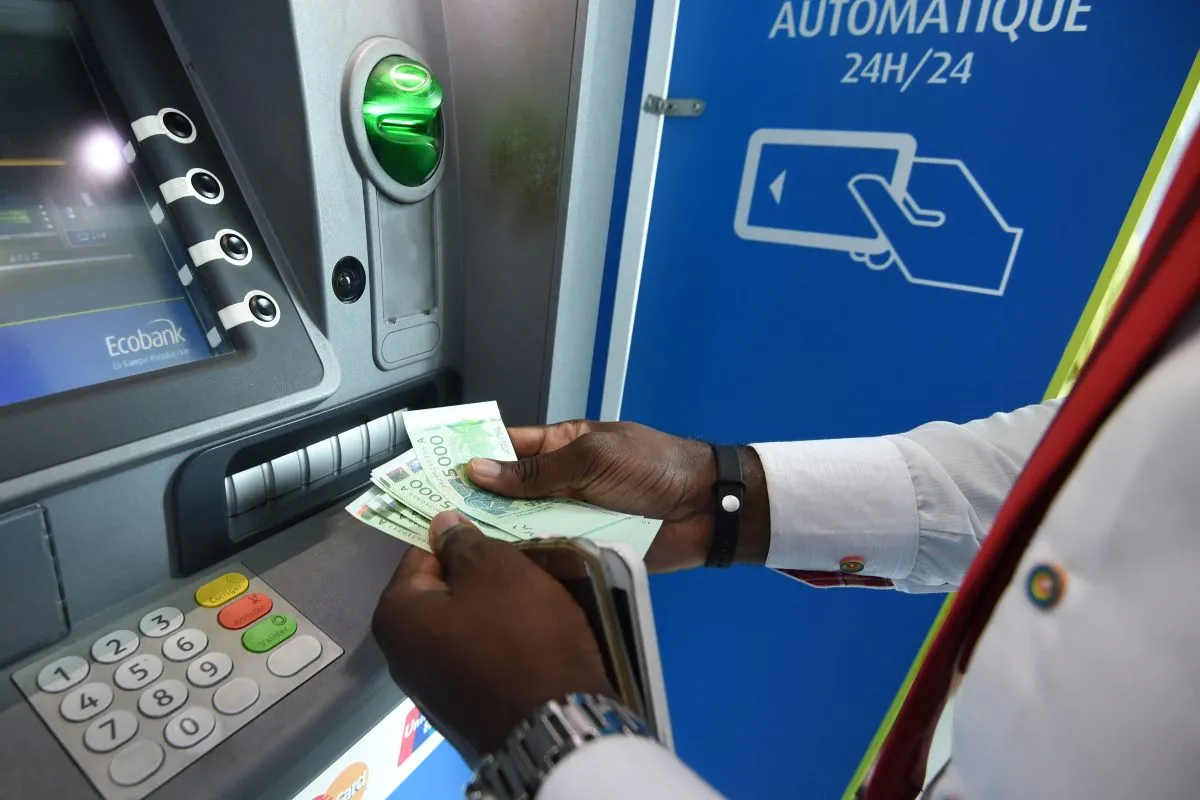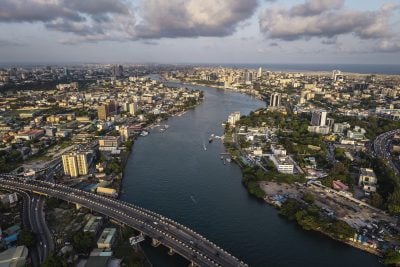British International Investment (BII), the UK government’s development finance institution, has announced a $25m risk sharing facility with Ecobank Sierra Leone, in a move designed to help the lender commit significantly more capital to small and medium-sized enterprises (SMEs) and, in turn, promote stronger economic growth in the West African country.
SMEs provide employment to around 70% of the Sierra Leonean population but have traditionally struggled to access the capital needed for investment and growth. This is partly because banks in the region perceive SMEs in the country to pose an unacceptably high level of risk.
Sebastian Ashong-Katai, managing director of Ecobank Sierra Leone, tells African Business that “what traditional bankers have tended to do to manage the risk is just ask for as much collateral as they can – and this is where you find many SMEs struggling.”
“SMEs also have technical challenges meeting requirements imposed by the banks, such as around bookkeeping and how they organise their business,” he adds, which further complicates their efforts to access much-needed capital.
Challenging environment
While this has been a problem for SMEs in Sierra Leone for many years, Ashong-Katai notes that it has been particularly difficult recently. Prompted by the outbreak of the Covid-19 pandemic in 2020 and all the economic turbulence that followed, many African countries have struggled with depreciating currencies, high levels of inflation, and elevated interest rates, making it even trickier and costlier to borrow and invest.
Ashong-Katai says that “the last few years have been very difficult for most businesses and, unfortunately, the smaller businesses are most affected by high interest rates and currency depreciations as they have less capacity to be able to absorb these shocks. Especially in this context, the BII facility really does come in very handy.”
The BII’s risk sharing facility aims to solve many of the challenges faced by SMEs in Sierra Leone by providing a guarantee to Ecobank that they will carry half of the risk on loans directed to high-impact sectors of the economy. This will allow Ecobank to increase its credit limits, extend lending tenors to up to five years, and free up significantly more capital for Sierra Leone’s SMEs.
Samir Abhyankar, managing director and head of financial services at the BII, explains that “if you look at Ecobank Sierra Leone’s balance sheet, it’s a very, very strong balance sheet and it is a very liquid balance sheet.”
“However, the level of risk that is associated with SMEs is perceived to be much higher as they do not have access to collateral. They tend not to have land they can put up as collateral, or parent companies that can provide a guarantee. So Ecobank asked us to help alleviate credit risk,” he says.
“We have effectively given Ecobank a guarantee – if things go bad on a certain loan, we are both carrying half the risk. That helps us, because it directs their money to sectors that we like. And it helps them because, if things go south, we are carrying half the risk – and if it is a woman-led business, we actually take on more of the risk.”
Ashong-Katai notes that the key impact of this risk sharing facility is that “it reduces the need for SMEs to put up collateral.”
“The BII facility does not entirely eliminate the need for collateral, but it reduces it so companies that might not have qualified for loans before will now be able to get financing,” he says.
Ashong-Katai adds that the longer tenors this facility provides is also critical for SMEs.
“If you are an SME who is trading in household cleaning materials, for example, we might give you a working capital facility that allows you to buy stock and then you pay us back over 30, 60, or 90 days depending on how your business works, and that will be fine.”
“But if you come to us and say that your business is booming, and the storage facility that you have for your stock is now too small, so you need to expand it – that’s not something you can pay back in 30 or 60 days. You might need two or three years,” he explains.
“That is the difference with this initiative with BII: we will now be able to say “yes” to that customer who says that their business is growing, and they want financing support to take it to the next level.”
New resilience initiative
This announcement marks the first investment under its new Africa Resilience Investment Accelerator (ARIA) initiative, which was established by the BII and is jointly funded by FMO, a development bank based in the Netherlands. ARIA aims to unlock investment in frontier markets and is currently operational in Sierra Leone, Liberia, Benin, the Democratic Republic of the Congo, and Ethiopia.
Abhyankar tells African Business that “frontier markets face challenges accessing the already pretty limited investment dollars that go into Africa – and that is not at all an accurate reflection of the economic potential of these markets.”
“With the right government institutional support and upskilling, we think these countries stand a really good chance of accessing the same dollars that are currently going to countries such as Egypt and South Africa,” he adds. “But it needs concerted action and more of a patient outlook, because it is not like you can create the investment opportunities in these markets overnight. You need to build up ecosystems of investment – and that is what ARIA is trying to do.”
Ashong-Katai is optimistic that this initiative with the BII will have tangible, positive outcomes for SMEs in Sierra Leone. “Because BII is taking on half the risk, the $25 million facility allows us to do $50 million worth of lending. It will also allow us to give larger loan sizes than our balance sheet would typically allow.”
Ashong-Katai points to the work Ecobank is currently doing with Miro Forestry, the largest plantation forestry group in West Africa, as an example of what can be achieved.
“Miro Forestry has got over 58,000 hectares under cultivation at the moment in Sierra Leone. They currently employ about 2,000 people but over the next few years, thanks to the support we can now give them, they are going to employ up to 5,000 people. These are the kind of outcomes that we can expect to see.”
In time, Ashong-Katai hopes that the facility can be expanded beyond its current size of $25m and can also be expanded beyond Sierra Leone to other frontier markets in Africa.
“If this product is successful in Sierra Leone, and we do not think there is any reason why it should not be, it can be applied much faster to other countries,” he says.
Want to continue reading? Subscribe today.
You've read all your free articles for this month! Subscribe now to enjoy full access to our content.
Digital Monthly
£8.00 / month
Receive full unlimited access to our articles, opinions, podcasts and more.
Digital Yearly
£70.00 / year
Our best value offer - save £26 and gain access to all of our digital content for an entire year!

 Sign in with Google
Sign in with Google 



